This website uses cookies
We use cookies to ensure that we give you the best experience on our website. If you continue to use this site we will assume that you are happy with it.
Jump to:
Jaclyn Kelley-Widmer, Associate Clinical Professor of Law
Alisa Whitfield, Adjunct Clinical Professor of Law

Jaclyn Kelley-Widmer

Alisa Whitfield
In fall 2023, the 1L Immigration Law & Advocacy Clinic has three advanced students working on several special projects. Thanks to a generous grant from the Cornell Migrations Initiative, the clinic continues our work with detained clients in Louisiana, the state with the second-largest population of detained immigrants. In collaboration with a coalition that includes the Southern Poverty Law Center and the ACLU, clinic students visited Louisiana in September to provide legal services for immigrants detained there. We provide follow-up services to clients we encountered during the trip.
Closer to home, students are working on projects including providing legal information to individuals attending the Mexican mobile consulate visits with the Cornell Farmworkers Program; creating resources for DACA and undocumented students to regularize their status and to educate members of the Cornell community about working with these groups; and other legal projects related to asylum applications and undocumented clients.
Hilary Fraser, Adjunct Professor of Law

Hilary Fraser
With approximately thirty-five affirmative asylum applications for Afghan scholars pending at the start of the fall 2023 semester, the Afghanistan Assistance Clinic (AAC) recently received several pieces of good news, including two case approvals. The first case was approved fifteen months after filing, and; the second case was approved eight months after filing. In both cases, our clients have spouses who arrived in the United States as evacuees under the Operation Allies Welcome (OAW) legislation requiring expeditious processing of certain Afghans. Significantly, in these approved cases, the approved applications belonged to our non-OAW covered clients, not their OAW spouses. Even without the benefits of OAW, our cases were approved!
The remaining thirty-three applicants have no ties to OAW or other rush procedures, unless Congress or the federal administration acts to treat equally all Afghans who arrived at the time of the collapse of Kabul. AAC administrators in the clinical program continue to monitor and respond to questions from this important group of clients.
This semester, we are exploring other opportunities to work with local organizations helping Afghan and other immigrants in the Southern Tier. The good news inspiring this exploration of town-gown cooperation is that two nonprofits received funding to expand their services in Ithaca. First, Journey’s End Refugee Services (JERS), a Buffalo-based organization serving asylees and refugees, received specific funding to work with Afghans in Ithaca. JERS also received state funding to work with asylees from other countries. Second, New York State increased funding to Catholic Charities (CC) in Ithaca. CC is a well-known and well-regarded supporter of immigrants, focused on naturalization, work permits, permanent resident adjustments, and travel permissions. In Ithaca, CC does not handle asylum or court-based appearances.
What does this mean for Cornell Law students? Cornell Law students may apply for Pro Bono Scholar program placement at JERS for the spring semester 2024, and may structure and seek credit approval of externships or internships at either agency. Volunteering at workshops for pro se filers of naturalization or other such applications is also a possibility. For spring 2024, the AAC may resume in an adjusted format designed to give students both off-campus and on-campus opportunities to work on asylum cases. Stay tuned for more news on these topics.
For recent CLS grads, JERS has openings for two full-time attorneys in their Ithaca office. Please reach out to Emily Capone (ecapone@jersbuffalo.org), the attorney-supervisor of JERS’ legal staff.
Estelle McKee, Clinical Professor of Law
Stephen W. Yale-Loehr, Professor of Immigration Law Practice

Estelle McKee

Steve Yale-Loehr
Thanks to the excellent work of our law students, our Asylum and Convention Against Torture Clinic received three remands from the Board of Immigration Appeals (BIA) this spring and summer.
In the first case, involving “IES,” a client from Mexico, students argued that the immigration judge ignored evidence that IES’s drug conviction rested on possession for personal use, and was therefore not a “particularly serious crime.” The immigration judge also made multiple errors when finding IES ineligible for relief under the Convention Against Torture. Among those errors, he found that IES could “safely relocate” since he had fled gangs previously; and that the judge failed to consider and aggregate voluminous evidence that future torture was likely. The BIA agreed with the students and remanded the case.
The second case similarly involved multiple errors by the immigration judge. The client, “LRG,” was a former gang member from El Salvador. Students argued that LRG’s identifying characteristics, including his unusual hair color, gang tattoos, and criminal history, would subject him to torture by Salvadoran gangs and, while in prison, the government. In addition, students argued that a U.S. Immigrations and Custom Enforcement (ICE) data leak increased the client’s risk of torture. The BIA agreed and remanded.
Lastly, students represented another Salvadoran citizen, “REC,” whose family suffered police retaliation when REC’s family sued them for murdering his brother, who was a member of the MS-13 gang. The students argued that the immigration judge erroneously failed to consider REC’s family as his particular social group, and the Salvadoran government as one of his persecutors for purposes of asylum. REC also feared retaliation and torture by the MS-13 gang itself, which the immigration judge failed to consider as part of his Convention Against Torture claim. The BIA remanded.
In addition, the Ninth Circuit has agreed to hear oral arguments in a clinic case involving a Salvadoran client, “ML.” The students visited ML in California, where he was on a hunger strike after having been detained for more than a year. Clinic students assisted the Asian Law Caucus in seeking ML’s release via requests to ICE and a habeas petition that ultimately succeeded. The Ninth Circuit will consider students’ arguments that the BIA erred by finding ML was not eligible for protection under the Convention Against Torture.
Rachel Goldberg, Associate Clinical Professor of Law

Rachel Goldberg
In the spring of 2023, Appellate Criminal Defense Clinic student Claire Piorkowski ’23 argued a client’s case in front of a five-judge panel at New York’s Appellate Division, First Department. The client is currently serving a 16-year-to-life term for second-degree robbery. The appellate brief, drafted with clinic partner Gaby Pico ’22, argued, in part, that the conviction was legally insufficient and, against the weight of the evidence, that the court provided a faulty charge to the jury; and that the sentence is unconstitutional because it is grossly disproportionate to the crime charged. At oral argument, Piorkowski focused on the brief’s Fourth Amendment challenge, arguing that a search warrant for the client’s cell phone lacked probable cause and was overly broad.
Celia Bigoness, Clinical Professor of Law and Director of the Blassberg-Rice Center for Entrepreneurship Law
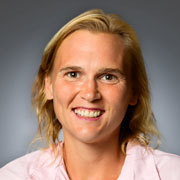
Celia Bigoness
As previously announced, the Entrepreneurship Law Clinic will be expanding significantly in 2024 as part of the new Blassberg-Rice Center for Entrepreneurship Law. To support this expansion, we are now actively seeking clinicians to join the clinic, both in Ithaca and at the Cornell Tech campus in New York City.
Meanwhile, clinic students in Ithaca continue to represent entrepreneurs and small start-up businesses in both upstate and downstate New York. Clients include both for-profit and nonprofit businesses in a range of industries. This semester, the clinic will assist about a dozen clients in matters including formation of business entities, applying for tax-exempt status, fundraising, intellectual property protection, and commercial contracts. One of the clinic’s nonprofit clients was recently profiled in this article.
Jill Miller, Adjunct Professor of Law
Kate Madigan, Adjunct Professor of Law
Michael O’Connor, Adjunct Professor of Law

Jill Miller
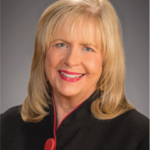
Kate Madigan
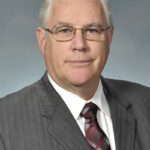
Michael O’Connor
In its ninth year, the Estate Planning Practicum continues to provide free basic estate plans to underserved clients in the Ithaca area.
In the spring, students developed, organized, marketed, and presented their annual public estate planning seminars with options for in-person and virtual attendance. Topics included “Succession with and Without a Will,” “Planning for Medicaid,” “Retirement and Life Insurance Planning,” and “Trusts for Minors.” More than 200 people attended the seminars with at least 60 attending via Zoom. At least 125 attendees prepared and signed free Health Care Proxies and Living Wills. Many attendees expressed their gratitude for having such a practical and helpful program, and the attendees engaged directly with the students and asked many questions, which the students enthusiastically addressed. Attendees said they will tell their friends and family about next year’s program.
Towards the end of the semester, the students participated in Law Day, a trip to New York City. They toured the New York County Surrogate’s Court, viewed the Court’s calendar call, met Judge Hilary Gingold, and met with the New York County Public Administrator, Dahlia Damas, and her counsel, Staci Graber. They also had lunch at Brown Brothers Harriman — one of the oldest and largest private investment banks in the United States — and met with their in-house trusts and estates attorneys to learn about their unique and interesting careers. The third stop in their action-packed day was a tour and visit to Sotheby’s, where they watched a live auction of valuable art and antiques and met with in-house attorneys to hear about other trusts and estates’ legal careers. The students ended their day with a networking dinner, where they had the opportunity to have meaningful conversations with senior attorneys from various legal fields (litigation, international tax, trusts and estates, art and entertainment law, and appellate work) including Supreme Court Judge Melissa Crane (Cornell Law alumnus) and recently retired Supreme Court Judge Barbara Jaffe.
Beth Lyon, Associate Dean for Experiential Education, Clinical Professor of Law, and Clinical Program Director
Reina Fostyk, Legal Fellow, Farmworker Legal Assistance Clinic
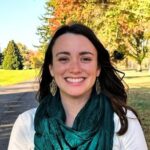
Reina Fostyk

Beth Lyon
In 2023, one Farmworker Legal Assistance Clinic client has received deferred action, several have received work authorization, and one client received lawful permanent residence. Clinic students and faculty recently appeared in the Montgomery and Niagara County Supreme Courts, obtaining predicate orders that put their clients on a path to citizenship. Over the summer, the clinic supported efforts to address anti-immigrant county ordinances. The clinic also submitted an amicus brief with the New York State Public Employee Relations Board arguing that farmworkers present in the United States on temporary foreign work visas have the same labor rights as other farmworkers under the New York State Constitution.
G.S. Hans, Associate Clinical Professor of Law
Mark Jackson, Adjunct Professor of Law
Heather Murray, Managing Attorney of the Local Journalism Project
Christina Neitzey, Stanton Fellow (not pictured)
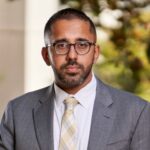
Gautam Hans

Mark Jackson

Heather Murray
Last semester, a New York trial court ruled in favor of First Amendment Clinic client The City in a case seeking access to New York City Department of Education records from its investigation into twenty-six Hasidic schools, and awarded attorney’s fees and costs. Former clinic colleague Ava Lubell and Heather Murray, managing attorney of the local journalism project, filed the petition in this case in 2021, and Murray argued before the court for access nearly two years to the day of that filing in April 2023. In June, the DOE filed a still-pending motion seeking to reargue, renew, or, in the alternative, appeal that decision.
In March, the clinic secured reversal of a school district policy in Pittsford, New York, which mandated that all members of district committees “remain positive and supportive of the District and Committee at all times and in all settings.” The change came after a member of the district’s Inclusivity Advisory Committee raised First Amendment concerns about the policy and its impact on her ability to express criticism of the school district. After the clinic’s intervention, the district agreed to exempt the clinic’s client from the policy immediately and eliminate the policy for all committee members starting this summer. Clinic students Yifei Yang ’23, Alison Draikiwicz ’23, and Cameron Misner ’24 worked on this matter.
The clinic and co-counsel, the Reporters Committee for Freedom of the Press, secured access this summer to wrongful death suit settlement records involving a private healthcare contractor for Pennsylvania prisons and the estate of an incarcerated person. Clinic students Patrick George ’24 and Juzhi Zheng ’23 drafted portions of the motion to intervene and unseal.
Earlier this year, the New York Court of Appeals agreed to hear clinic client Daniel Karlin’s challenge to a parole condition which infringes on his First Amendment rights. The condition bars Karlin from viewing, possessing, or accessing any material with any depiction of nudity or sexual activity. The clinic filed its opening brief in June arguing that, although Karlin, as a parolee and a registered sex offender, is subject to myriad constraints on his liberty, these restrictions have a limit. Given its breadth and lack of relationship to any legitimate penological interest, the parole condition Karlin challenges far surpasses any permissible limitations on his First Amendment rights. The clinic will file a reply brief in the fall. Clinic students Jared Mcmahon ’24, Alison Draikiwicz ’23, and Steve Mirsen ’23 drafted portions of the opening brief.
Clinic students Maria Kearns-Galeano ’23 and Matthew Hornung ’24 argued in May before the Commonwealth Court in a case seeking access to hate crime data from the Pennsylvania State Police on behalf of journalist Carter Walker and LNP Media Group, Inc. The court granted the state agency’s application to discontinue the case after it produced the data our clients sought. The clinic and co-counsel RCFP recently filed an application for attorney’s fees that resulted in the court scheduling another oral argument in October that Hornung will handle.
The clinic filed an opening brief in August in New York’s Appellate Division, Second Department, in a libel suit that tests the efficacy of New York’s recently amended anti-SLAPP (Strategic Lawsuits Against Public Participation) law. The clinic represents a Tarrytown resident sued for libel by the owner of a towing company in a case challenging a series of communications our client made to local government officials, clergy, journalists, and others about matters of public interest including local politics, municipal contracts with the towing company and other companies, and race relations. The clinic anticipates completing briefing this semester. Clinic students Lauren Kazen ’23, Sabrina Palacios ’24, Shayla Hinson ’23, and Connor Flanner ’24, as well as clinic summer legal fellows Nyssa Kruse and Svetlana “Aika” Riguera drafted portions of the opening brief.
The clinic filed a lawsuit in June in Niagara County Supreme Court on behalf of Tracy Murphy, founder of an animal sanctuary in rural upstate New York and advocate for animal welfare. The suit challenged a gag order a town court justice imposed on Murphy restricting her First Amendment rights while she awaits trial on a misdemeanor larceny charge stemming from a dispute over the ownership of two cows. The gag order imposes a blanket ban on Murphy’s use of any form of social media — which the order defines to “specifically include Facebook and public billboards, etc.” — while the criminal case against her is pending. In August, Stanton Fellow Christina Neitzey argued before the trial court judge, who, while “not unsympathetic” to the First Amendment arguments raised, ultimately denied the petition on procedural grounds. Clinic summer legal fellows Eman Naga and Karem Herrera assisted with this matter.
The clinic sent a demand letter in August to Delaware County on behalf of Catskills outlet The Reporter seeking reinstatement of The Reporter as an official county newspaper in response to recent retaliatory actions taken by county officials against the paper due to coverage they didn’t like. These actions include de-designating The Reporter as an official county newspaper in 2022, sending a letter to The Reporter demanding a change to coverage going forward, and issuing a directive prohibiting county employees from speaking to the editor of The Reporter about matters of public concern. The clinic plans to file suit if the matter is not satisfactorily resolved.
The clinic secured access to wage theft data in late February on behalf of nonprofit news site Documented. In August, Documented launched its wage theft monitor database, which in large part is made up of these and other documents the clinic secured for them. The database documents labor violations in New York State and sheds light on companies that the state or federal Department of Labor have found withheld wages from employees. The clinic worked for nearly three years with Documented on this effort, including filing a Freedom of Information lawsuit in 2020 and multiple records requests seeking access to wage theft data. The database can be accessed here: https://www.nywagetheft.com/.
Sandra Babcock, Clinical Professor of Law

Sandra Babcock
The International Human Rights Clinic welcomed a new group of clinic students in August 2023, and they are already hard at work documenting human rights violations around the world, including in the United States. Students are engaged in litigation before the African Court on Human and Peoples’ Rights, challenging the application of the death penalty. They are also working with partners in Uganda and Tanzania to document human rights violations and seek redress for victims. In the United States, they are helping defend survivors of gender-based violence facing extreme sentences, including women on death row in Texas and Oklahoma. They are also analyzing the extreme heat and overuse of solitary confinement in a Texas women’s prison under human rights standards. In October, students will travel to Kampala, Uganda, and Arusha, Tanzania, to meet with local partners and strategize around our ongoing work, much of which is politically sensitive.
Angela Cornell, Clinical Professor of Law

Angela Cornell
Union activity has increased in the last year, and the Labor Law Clinic has experienced a substantial rise in inquiries related to union organizing. We have had some recent success with related unfair labor practices before the National Labor Relations Board. In one case, students were successful at getting two local Ithaca workers from Sunbeam Candles backpay and reinstatement after they were unlawfully terminated for union organizing. The board also found merit in many of the allegations in another clinic union organizing case involving GEICO Insurance in Buffalo. The regional director found meritorious numerous allegations of employer coercive conduct that violates the National Labor Relations Act (NLRA), including interrogation and polling related to the union campaign, coercive statements made by management to employees, promise of benefits to encourage employees not to support the union, removing union literature in the workplace, and communication to employees that encouraged them to call the police if a union organizer contacted them, among other issues. In addition to the cases where we represented clients before the board, clinic students have also done considerable research — legal and factual — to support other noteworthy organizing cases that have resulted in positive board decisions.
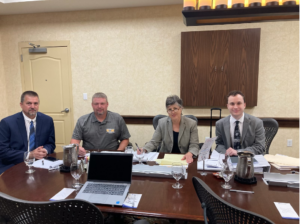
From right: Cole Quigley ’25, Angela Cornell, and clinic clients at an August arbitration.
The clinic also had an arbitration in upstate New York in August. The student, Cole Quigley ’25, pictured at the arbitration with our client, put together the case and presented all the evidence to the arbitrator. He did the opening, direct and cross-examinations, dealt with evidentiary issues, and, along with clinic students Jack Ligon ’24, Robb Ridgely ’25, and Malcolm Drentte ’25, is working on the post-arbitration brief. Jason Steuerwald ’25 also contributed substantially to this case early in the process. The case involves both contractual rights under a collective bargaining agreement and statutory rights under the NLRA.
Additionally, Angela Cornell was an Engaged Cornell Faculty Team Member on the Politics of Sustainable Development course in Ecuador, where she taught material on business and human rights and travelled with students to the Amazon Basin.
Austin Arnold, Adjunct Professor of Law
Ellen Kreitmeier, Adjunct Professor of Law
John McKinley, Professor of Practice in Accounting (not pictured)
Marquise Riley, Adjunct Professor of Law & Lecturer of Accounting
Thomas Godwin, Professor of Practice in Accounting (not pictured)

Austin Arnold

Ellen Kreitmeier

Marquise Riley
Thomas Godwin, who recently joined Cornell’s Dyson School in the SC Johnson College of Business as a professor of practice in accounting, is partnering with the Low-Income Taxpayer Law and Accounting Practicum. He is currently leading efforts to bring back comprehensive free tax preparation services for low-income taxpayers in the Ithaca area in spring 2024. Godwin holds a PhD in accounting from Purdue University as well as a MPAcc in tax and a BS in accounting from Clemson University. He is a licensed CPA and holds a Chartered Global Management Accountant designation. Before entering academia, he worked in tax consulting for a large national public accounting firm, primarily serving private equity firms.
Before joining Cornell, Godwin was an assistant professor of accounting at Purdue University. During his time at Purdue, he led the university’s Volunteer Income Tax Assistance program, where he oversaw the preparation of more than 20,000 tax returns that produced over $20 million in community impact.
Julia Mizutani, Law Research, Instruction, and Liaison Librarian; Adjunct Professor of Law
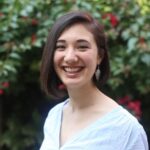
Julia Mizutani
Although law students have been teaching classes through the Cornell Prison Education Program (CPEP) for many years, a new 5-credit practicum launching in spring 2024 seeks to consistently offer high quality legal education to students incarcerated in nearby prisons while also exposing law students to the prison industrial complex and legal issues therein. Last spring, two research assistants were hired to help develop the practicum, Tori Staley ’23 and Steve Mirsen ’23, who had experience teaching law classes in prisons through CPEP.
The practicum, taught by Julia Mizutani, will have both a classroom component and a community teaching component. Students will learn to teach and communicate complex legal principles and introductory legal research to students incarcerated in nearby prisons. Law students in the practicum will coteach a law-related course at Auburn, Cayuga, Elmira, or Five Points correctional facilities as part of CPEP, which offers college courses to students who are incarcerated and working toward their associates’ degrees. Students will design a course syllabus, procure teaching materials, and teach a two-hour class inside one of the prisons on a weekly basis over fifteen weeks. The classroom component will include reflection on prison legal issues, prison censorship, prison law libraries, and applying critical legal pedagogy and critical information literacy to weekly teaching rounds.
This fall, Mizutani is teaching a legal research and writing class at Auburn Correctional Facility and is advising two law students, Mahnoor Mian ’25 and Jacqueline Groskaufmanis ’25, who are teaching a torts class at Five Points Correctional Facility.
The spring 2024 practicum will accept up to six law students.
After earning her JD at Georgetown University Law Center, Julia Mizutani practiced as a civil rights attorney with the ACLU of Washington in Seattle for three years. At the ACLU, Julia worked primarily on impact litigation pursuing economic justice in housing and juvenile legal systems. Her work included cases that challenged the criminalization of homelessness and poverty through policy advocacy and impact litigation. Julia wrote or contributed to the writing of more than a dozen amicus briefs to the Washington Supreme Court and the Ninth Circuit. She also reviewed legislative bills related to civil rights and civil liberties, advocated for new court rule proposals that advanced racial equity, and wrote sections of a policy report on race and the juvenile legal system presented to the Washington Supreme Court.
As a law research, instruction, and liaison librarian at Cornell, Julia supports the Law Library’s research and reference services and teaches legal research to Cornell Law’s JD and LLM students, and in the Lawyering program. Julia also contributes to law faculty liaison services; law materials selection; and outreach and instruction services in the Law Library.
Sujata Gibson, Adjunct Professor of Law

Sujata Gibson
Since its inception in 2020, the Protest Defense Practicum has been assisting with litigation on behalf of protesters in New York City who were wrongfully arrested and subjected to excessive use of force during peaceful demonstrations in the wake of the killing of George Floyd. Several of these lawsuits settled in September, including a related landmark settlement in a case spearheaded by the New York State Attorney General, which resulted in an agreement requiring the New York City Police Department to make significant changes to its policing policies involving protests. “These settlements represent a watershed moment in the fight for protest policing reform in New York City” said Adjunct Professor Sujata Gibson, who teaches the practicum, “but there is still more work to be done to ensure that those harmed get relief, and that the NYPD understands that protesters are entitled to exercise their First Amendment rights without facing intimidation and violence.”
This semester, the Protest Defense Practicum is partnering with civil rights firm Cohen & Green, PLLC, one of the lead firms in the consolidated lawsuits, to continue to litigate important issues that were not resolved in the settlement.
William Niebel, Tenants Advocacy Attorney and Adjunct Professor of Law

William Niebel
In its fourth year, the Tenants Advocacy Practicum continues to expand, working to address the housing justice gap in Ithaca and the surrounding counties. This fall, three law students returned to the practicum as advanced students, to continue developing their advocacy skills while serving local tenants in need. Additionally, fifteen law students and one undergraduate student are enrolled in the primary course this fall, bringing the total to nineteen students.
William J. Niebel, who has been teaching the practicum as an adjunct professor since 2020, began working on a full-time basis in 2022 as the first Tenants Advocacy Attorney at Cornell. This fall, he transitioned into a new role — supervising attorney. The New York State Office of Temporary and Disability Assistance (OTDA) funded this position through a subcontract with Legal Assistance of Western New York (LAWNY). The practicum will handle more cases and provide extended representation to tenants in Chemung, Schuyler, Steuben, and Tioga counties through this grant. One additional tenants advocacy attorney position has been posted on Academic Jobs Online. This position will increase the breadth and depth of assistance provided through the Tenants Legal Hotline.
James Hardwick, one of the new Veterans Law Practicum professors, began working full time at the law school in September as the inaugural Veterans Law Staff Attorney. The veterans law staff attorney will work collaboratively with the tenants advocacy supervising attorney, the Tenants Advocacy Practicum students, and the Veterans Law Practicum students, to represent veterans at risk of homelessness. The veterans law staff attorney will provide brief advice and full scope representation for all Veteran clients at risk of homelessness, through the Tenants Legal Hotline, across five counties with a special focus on BIPOC Veterans, women Veterans, Veterans facing food insecurity, Veterans living below the poverty line, and Veterans unable to be served by LAWNY.
Ian Kysel, Assistant Clinical Professor of Law

Ian Kysel
This year, the Transnational Disputes Clinic celebrates its second year. Students this term continue to work on projects raising public interest matters before international investor-state arbitral tribunals and advancing the rights of refugees in national courts and other fora. This past spring, clinic students represented several human rights organizations in a dispute against a European country before the International Centre for Settlement of Investment Disputes. The clinic also represented the Global Strategic Litigation Council for Refugee Rights (GSLC) as amicus curiae before a tribunal in Mexico in a case challenging the constitutionality of Mexico’s reception of migrants under the U.S. Title 42 expulsion policy. Clinic students have recently traveled to meet with clients or partners or present on their litigation work in Mexico City, Warsaw, and Los Angeles. Ian Kysel and the clinic continue to support the GSLC, the Secretariat of which is cohosted at the Law School’s Migration and Human Rights program.